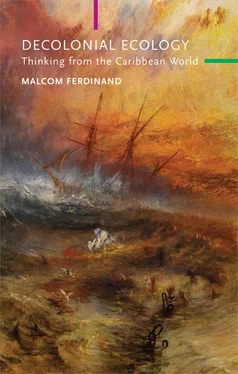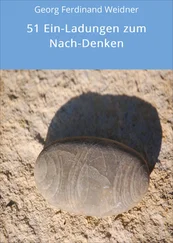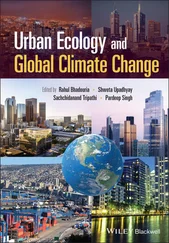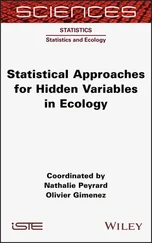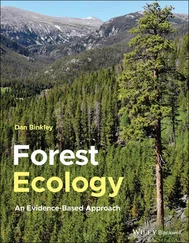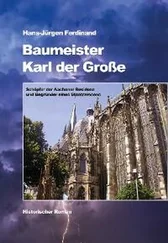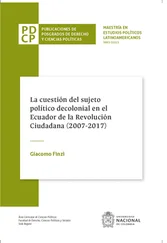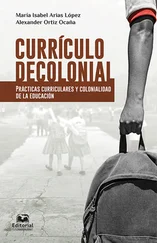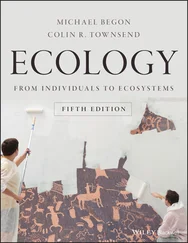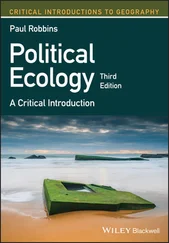The publication of this series is supported by the International Consortium of Critical Theory Programs funded by the Andrew W. Mellon Foundation.
Series editors: Natalia Brizuela, Victoria Collis-Buthelezi and Leticia Sabsay
Leonor Arfuch, Memory and Autobiography
Paula Biglieri and Luciana Cadahia, Seven Essays on Populism
Aimé Césaire, Resolutely Black
Bolívar Echeverría, Modernity and “Whiteness”
Malcom Ferdinand, Decolonial Ecology
Celso Furtado, The Myth of Economic Development
Eduardo Grüner, The Haitian Revolution
Karima Lazali, Colonia Trauma
María Pia López, Not One Less
Pablo Oyarzun, Doing Justice
Néstor Perlongher, Plebeian Prose
Bento Prado Jr., Error, Illusion, Madness
Nelly Richard, Eruptions of Memory
Silvia Rivera Cusicanqui, Ch’ixinakax utxiwa
Tendayi Sithole, The Black Register
Maboula Soumahoro, Black is the Journey, Africana the Name
Decolonial Ecology
Thinking from the Caribbean World
Malcom Ferdinand
Translated by Anthony Paul Smith
polity
Originally published in French as Une écologie décoloniale: Penser l’écologie depuis le monde caribéen © Editions du Seuil, 2019
This English edition © Polity Press, 2022
Excerpt from A Tempest by Aimé Césaire, translated by Richard Miller. Copyright © 1969 by Editions du Seuil. Copyright English translation © 1985 by Richard Miller. Published by Theatre Communications Group. Used by permission of Theatre Communications Group.
Excerpt from Black Skin, White Masks by Frantz Fanon. English translation copyright © 2008 by Richard Philcox. Used by permission of Grove/Atlantic, Inc. Any third party use of this material, outside of this publication, is prohibited.
Polity Press
65 Bridge Street
Cambridge CB2 1UR, UK
Polity Press
101 Station Landing
Suite 300
Medford, MA 02155, USA
All rights reserved. Except for the quotation of short passages for the purpose of criticism and review, no part of this publication may be reproduced, stored in a retrieval system or transmitted, in any form or by any means, electronic, mechanical, photocopying, recording or otherwise, without the prior permission of the publisher.
ISBN-13: 978-1-5095-4622-0 hardback
ISBN-13: 978-1-5095-4623-7 paperback
A catalogue record for this book is available from the British Library.
Library of Congress Control Number: 2021939020
by Fakenham Prepress Solutions, Fakenham, Norfolk NR21 8NL
The publisher has used its best endeavours to ensure that the URLs for external websites referred to in this book are correct and active at the time of going to press. However, the publisher has no responsibility for the websites and can make no guarantee that a site will remain live or that the content is or will remain appropriate.
Every effort has been made to trace all copyright holders, but if any have been overlooked the publisher will be pleased to include any necessary credits in any subsequent reprint or edition.
For further information on Polity, visit our website: politybooks.com
Part I The Modern Tempest
Conquérant
Planter
Nègre
La Tempête
Part II Noah’s Ark
Noé
Chasseur
Paraíso
Cavendish
Wildfire
Part III The Slave Ship
Espérance
Escape
Wanderer
Gaïa
Part IV The World-Ship
Rencontre
Corpo Santo e Almas
Baleine
Justice
Epilogue
Soleil d’Afrique
Figure 1Joseph Mallord William Turner, Slavers Throwing Overboard the Dead and Dying, Typhoon Coming On , 1840.
Figure 2William Clark, “Cutting the Sugar Cane,” in Ten Views in the Island of Antigua (London: Thomas Clay, 1823).
Figure 3 Detail from René Lhermitte, Plan, Profile and Layout of the Ship Marie S éraphique of Nantes , c . 1770.
Figure 4 The cyclones Katia, Irma and José, 8th September 2017, © NOAA satellites, GOES-16.
Figure 5 Thomas Moran, Slave Hunt, Dismal Swamp , Virginia, 1861–2.
Figure 6 Soil erosion in Haiti, which maroons towards the sea, 2012. Photo © Malcom Ferdinand.
Figure 7 Banana plantation in Martinique, 2017. Photo © Malcom Ferdinand.
Figure 8 Anse Cafard Memorial (Mémorial de l’anse Cafard) in Martinique, sculpture by Laurent Valère, 1998. Photo © Malcom Ferdinand.
Figure 9 Jason deCaires Taylor, Vicissitudes , 2007, © Jason deCaires Taylor. All rights reserved, DACS/Artimage 2021. Photo: Jason deCaires Taylor.
Figure 10 Albert Mangonès, Statue of the Unknown Maroon ( Statue du Marron inconnu ) in Port-au-Prince, Haiti, 1968. Photo © Marie Bodin.
Figure 11 Hector Charpentier, Memorial to the Abolition of Slavery ( Mémorial de l’abolition de l’esclavage ), Prêcheur, Martinique. Photo © David Almandin.
For my mother Nadiège
and my father Alex
To the struggles of the shipwrecked
and the ecological battles for a common world
If writing is a solitary work, these pages are full of the generous inspiration of companions in search of a world-ship. I would like to thank Christophe Bonneuil for welcoming the French edition of this book into Seuil’s “Anthropocène” collection, for his reading advice, and for his enthusiasm for this project. A big thank you to the team at Éditions du Seuil who made this book possible. I would also like to warmly thank the entire team at Polity for providing a welcoming atmosphere for this English translation. A special thank you to Natalia Brizuela and Elise Heslinga, who supported the project from the beginning, and to Anthony Paul Smith for the great care, ingenuity and dedication he showed in the translation of the book, turning this process into a joyful encounter. Thank you to Meghan Skiles and Gerry Regan, librarians at La Salle University’s Connelly Library, who helped track down and scan many of the English translations of the works referenced here. Based on my doctoral thesis, this book owes so much to my late thesis director Étienne Tassin, to his encouragement-rivers, and to his painting of a cosmopolitan horizon for the world. Thank you to the LCSP team at the University of Paris-Diderot and the members of my thesis committee, Catherine Larrère, Bruno Villalba, Émilie Hache, Justin Daniel, and Myriam Cottias, for their encouragement and crucial support after the thesis. Thank you to the Collectivité territoriale Martinique for its support of my thesis and this book project, as well as the Institut des humanités, sciences et sociétés (IHSS) for its support of the French edition by awarding me the Robert Mankin thesis prize for interdisciplinary research.
In the writing and post-thesis journey, I was fortunate to receive various forms of encouragement from colleagues and friends. Thanks to Pierre Charbonnier, Audrey Célestine and Silyane Larcher for opening up possible routes. Thanks to Gert Oostindie, Rosemarijn Hofte, Wouter Veenendaal, Stacey Mac Donald, Sanne Rotmeijer, Jessica Roitman and the whole team of the Royal Netherlands Institute of Southeast Asian and Caribbean Studies for their hospitality within the framework of a postdoctoral fellowship. Thanks to Nathalie Jas, Catherine Cavalin, and the members of the IRISSO whose welcome made it possible for me to prepare this book in agreeable conditions. Thanks to the fellow thinkers whose discussions, criticisms, and re-readings enriched this project: Axelle Ébodé, Yves Mintoogue, Pauline Vermeren, Odonel Pierre-Louis, Jean Waddimir, Jephté Camil, Kasia Mika, Adler Camilus, Margaux Le Donné, Laurence Marty, Gratias Klegui, Fabania Ex-Souza, Sarah Fila-Bakabadio, Kémi Apovo, Trilce Laske, Alizé Berthé, Grettel Navas, Raphaël Lauro, Sonny Joseph, Sada Mire, Angus Martin, Marie Bodin. Thanks to the collective of l’Archipel des devenirs for the philosophical practice of utopia and the utopian accounts of the world. Thank you to the many colleagues encountered in colloquia (they will know who they are), whose discussions have generously nourished this work. Thanks also to the environmental thinkers who initiated these reflections long before me. My disagreements with some of them are nothing more than a mark of respect. Thank you to the staff of the Bibliothèque nationale de France, whose smiles, handshakes, and sympathy pleasantly accompanied my long days. Thank you to friends for their precious companionship: Rudy, Jacques, Fred, Marie-George, Morgane, Mathieu, Régis, Hassan, Ludivine, Sarah, Benjamin, Luce, Davy, Domi, Jean-No, Gaëlle, Christelle, Olivier, Yannick, David, Wilhem, Cédric, and many others. Thank you to the late Lila Chouli, early decolonial ecologist. Thank you Carolin. Thanks to all the Caribbean ecologists, and especially those from Martinique, Guadeloupe, Haiti, and Puerto Rico, whom I met during my thesis, and whose struggles for Mother-Earth encouraged me to follow this path.
Читать дальше
